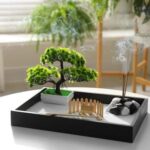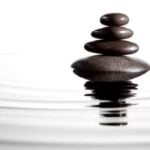The placement of mirrors in a bedroom plays a crucial role in Feng Shui, the ancient Chinese art of harmonizing energy flow. Mirrors are not just functional decor; they have significant implications for the overall energy balance of a space. When it comes to mirror placement in bedroom Feng Shui, it is essential to understand the principles and guidelines to maximize their positive impact.
In Feng Shui practice, bedrooms hold great importance as they are considered sacred spaces for rest, rejuvenation, and intimacy. The way energy flows within this room can greatly influence our well-being and relationships. Mirrors can either enhance or disrupt this flow depending on their placement and size. Understanding how mirrors interact with the energy in your bedroom can lead to better sleep quality and overall harmony.
Mirrors symbolize reflection and doubling of opportunities in Feng Shui. They have the power to amplify both positive and negative energies depending on their placement. Choosing the right mirror for your bedroom involves considering factors such as size, shape, frame material, and reflection clarity. By selecting a mirror that aligns with your intentions for the space, you can optimize its benefits for enhancing positive energy flow in your bedroom.
The Importance of Bedrooms in Feng Shui Practice
The bedroom is a significant area in Feng Shui practice as it is where we rest, rejuvenate, and replenish our energy. In Feng Shui, the way you arrange your bedroom can have a direct impact on the quality of your sleep, relationships, and overall well-being.
One crucial element to consider in the bedroom is the placement of mirrors. Mirrors have the power to reflect and expand energy, so it’s essential to place them thoughtfully to enhance positive energy flow.
The placement of a mirror in the bedroom should be done with great care to avoid creating negative effects on sleep and health. In Feng Shui, it is generally advised not to position a mirror directly across from the bed.
This placement can create restless energy that may disrupt sleep or cause discomfort. Instead, placing a mirror where it doesn’t directly reflect your body while resting can help maintain a sense of calm and relaxation conducive to a good night’s sleep.
When selecting a mirror for your bedroom in line with Feng Shui principles, consider choosing one with a frame that complements the decor of the room. The frame should be appealing and harmonize with the overall atmosphere you wish to create in your sleeping space.
Additionally, ensure that the mirror is kept clean and free of dust or smudges as part of maintaining good Feng Shui practices related to mirrors. A clean mirror not only reflects better energy but also promotes clarity and positivity in your environment.
| Mirror Placement Tips | Importance |
|---|---|
| Avoid placing mirrors directly across from the bed | Prevents disruptive energy for better sleep |
| Select a mirror with a complementary frame | Enhances overall decor harmony |
| Keep mirrors clean and dust-free | Promotes clarity and positivity in the environment |
The Symbolism of Mirrors in Feng Shui
In the practice of Feng Shui, mirrors hold significant symbolism that goes beyond just being a reflective surface. They are believed to amplify and enhance energy within a space, including bedrooms. The mirror’s ability to reflect light and energy is often associated with creating a sense of spaciousness and brightness in a room. In Feng Shui, mirrors are considered powerful tools for redirecting and circulating energy, also known as Chi, throughout the space.
When it comes to bedrooms, the placement of mirrors holds particular importance in Feng Shui. A mirror positioned directly across from the bed is often discouraged as it can create a sense of restlessness and disrupt sleep. Instead, placing mirrors strategically to reflect natural light or beautiful views can bring positive energy into the bedroom. It is essential to consider what the mirror will be reflecting and how it will impact the overall energy flow in the room.
For those looking to incorporate mirrors into their bedroom for Feng Shui benefits, choosing the right size and style is crucial. Mirrors with ornate frames or shapes that complement the overall decor can add beauty and elegance to the space while helping circulate positive energy. Additionally, keeping mirrors clean and well-maintained is essential for ensuring they continue to promote good Feng Shui in the bedroom.
| Mirror Placement | Impact on Energy Flow |
|---|---|
| Directly across from bed | Creates restlessness and disrupts sleep |
| Reflecting natural light or beautiful views | Brings positive energy into the bedroom |
How to Choose the Right Mirror for Your Bedroom
Mirrors play a crucial role in bedroom Feng Shui as they are believed to reflect and amplify energy within the space. When selecting a mirror for your bedroom, it is essential to consider not only the aesthetic appeal but also its energy-enhancing properties. Here are some tips on how to choose the right mirror for your bedroom:
- Size: Opt for a mirror that is proportionate to the size of your bedroom. A large mirror can make a small room appear more spacious, while a smaller mirror can add an accent without overwhelming the space.
- Frame: Choose a frame that complements the overall decor of your bedroom. Avoid sharp corners or edges on the frame, as they can create negative energy in the room.
- Placement: Consider where you want to place the mirror in your bedroom. According to Feng Shui principles, mirrors should not directly face the bed as they can disrupt sleep and create restlessness. Instead, position the mirror so it reflects something beautiful or meaningful.
Additionally, it is recommended to opt for mirrors with rounded or curved edges instead of sharp angles, as this helps to soften the energy flow within the room. Mirrors with ornate frames can add elegance and charm, enhancing the overall ambiance of your bedroom. Remember that simplicity is key when choosing a mirror for good Feng Shui in your bedroom.
When selecting a mirror for your bedroom, keep in mind its reflective quality and how it interacts with natural light sources in the room. A strategically placed mirror can help maximize natural light and create a brighter, more inviting atmosphere. By choosing the right mirror for your bedroom based on these considerations, you can optimize its Feng Shui benefits and harness positive energy flow throughout your living space.
Ultimately, by selecting a mirror that aligns with good Feng Shui principles and enhances positive energy flow in your bedroom, you can create a harmonious and restful environment conducive to better sleep and overall well-being. Take time to choose a mirror that resonates with you personally while also following these guidelines to ensure optimal benefits from incorporating mirrors into your bedroom’s Feng Shui design scheme.
Let your reflection be not only of yourself but also of tranquility and positive energy within your sacred space.
Best Placement for Mirrors in Bedroom Feng Shui
Positioning the Mirror in the Bedroom
When it comes to placing a mirror in your bedroom for good Feng Shui, the position of the mirror is crucial. According to Feng Shui principles, it is advisable to avoid placing a mirror directly facing the bed.
This is because the reflection in the mirror while you are sleeping can create restless energy and disrupt your sleep patterns. Instead, consider positioning the mirror where it does not reflect the bed directly, such as on a side wall or closet door.
Avoiding Negative Reflections
In Bedroom Feng Shui, it is also important to be mindful of what the mirror reflects. Avoid placing mirrors reflecting clutter, sharp objects, or anything that may create negative energy in the room. Opt for positioning the mirror to reflect natural light or a scenic view if possible to enhance positive energy flow in your bedroom.
Mirroring Symbolism and Energy Flow
Mirrors are believed to symbolize water elements in Feng Shui practice, representing clarity, abundance, and purification. When placed strategically in the bedroom, mirrors can help amplify positive energy and create a sense of spaciousness.
By harnessing the reflective properties of mirrors, you can promote better harmony and balance within your sleeping space. Remember that each time you look into the mirror before bedtime or upon waking up, you are also reflecting your inner self – so ensure that this reflection is a positive one for overall well-being.
Common Mistakes to Avoid When Placing Mirrors in the Bedroom
When incorporating mirrors into the bedroom for Feng Shui purposes, it is crucial to be mindful of common mistakes that can potentially disrupt the flow of positive energy in the space. The placement and positioning of mirrors can significantly impact the overall harmony and balance within the room, so it is essential to avoid certain blunders that may counteract the beneficial effects desired.
Avoiding Placement Facing the Bed
One of the most crucial mistakes to avoid when placing a mirror in the bedroom is positioning it directly facing the bed. According to Feng Shui principles, this can create a sense of restlessness and unease, leading to disrupted sleep patterns and even potential health issues. Instead, opt for placing the mirror where it does not directly reflect your sleeping area to maintain a peaceful and tranquil atmosphere conducive to restful sleep.
Avoiding Mirrors on Ceiling or Directly Above Bed
Another common mistake often made in bedroom Feng Shui is hanging mirrors on the ceiling or directly above the bed. This practice is believed to create too much active energy overhead, which can result in heightened stress levels and anxiety during sleep. To promote a sense of calm and relaxation in your bedroom, refrain from placing mirrors in such locations that could cause disturbances in your mental and emotional well-being.
Avoiding Broken or Distorted Mirrors
In Feng Shui philosophy, broken or distorted mirrors are considered bad luck and can introduce negative energy into your living space. It is imperative to avoid using damaged or cracked mirrors in your bedroom as they symbolize a reflection of fragmented reality or fractured relationships.
Opt for clear and pristine mirrors that reflect positivity and harmony instead of inviting discord into your personal sanctuary. By being cautious about these common mistakes, you can harness the power of mirrors effectively in bedroom Feng Shui practices and create a harmonious environment conducive to restful sleep.
Enhancing Positive Energy With Mirrors in Feng Shui
In the practice of Feng Shui, mirrors are often used as a powerful tool to enhance positive energy and create harmony within a space. When it comes to the bedroom, the placement of mirrors is crucial in order to achieve a peaceful and restful environment. By strategically placing mirrors in your bedroom according to Feng Shui principles, you can invite positive energy flow and promote relaxation.
To maximize the benefits of mirrors in Feng Shui, consider the following tips for enhancing positive energy in your bedroom:
- Position a mirror across from your bed to reflect any beautiful artwork or decor in your room, creating a sense of abundance and luxury.
- Avoid placing a mirror directly facing the bed or reflecting the bed, as this can disrupt sleep patterns and cause unrest.
- Use mirrors to bring more natural light into your bedroom by reflecting windows or light fixtures, which can uplift the energy in the space.
By carefully selecting the right mirror and placing it thoughtfully in your bedroom, you can transform the energy of the room and create a sense of tranquility. Remember that mirrors not only serve as functional pieces but also as symbols of reflection in Feng Shui. Embrace their power to magnify positivity and bring balance to your sleeping space.
Lastly, regularly cleanse and maintain your mirrors to ensure they continue to radiate good Feng Shui benefits. Dusting them frequently with a soft cloth and using natural cleaners will help preserve their clarity and effectiveness in enhancing positive energy flow in your bedroom. With these practices in mind, you can harness the power of mirrors in Bedroom Feng Shui for a better night’s sleep and overall well-being.
Tips for Maintaining and Cleansing Mirrors for Good Feng Shui Benefits
Mirrors play a crucial role in the practice of Feng Shui, especially when it comes to creating positive energy in your bedroom. Ensuring that your mirrors are well-maintained and cleansed regularly is essential for maximizing their Feng Shui benefits. In Feng Shui, mirrors not only reflect light and space but also symbolize the ability to see beyond what meets the eye, bringing clarity and harmony into your living environment.
To maintain good Feng Shui benefits from the mirrors in your bedroom, it is important to keep them clean and free from any dust or smudges. Regularly wipe down the surface of the mirror with a soft cloth and some mild cleanser to remove any dirt or fingerprints. Dust accumulation on the mirror can disrupt the flow of energy in your bedroom, so make it a habit to clean your mirrors at least once a week.
In addition to cleaning, it is also recommended to infuse positive energy into your mirrors by placing crystals nearby or burning sage around them. This helps to cleanse any negative energy that may have accumulated on the mirror’s surface over time.
By incorporating these practices into your regular mirror maintenance routine, you can enhance the positive energy flow in your bedroom and promote restful sleep. Remember, a well-cleansed and maintained mirror not only enhances the aesthetic appeal of your space but also contributes to a harmonious atmosphere conducive to good Feng Shui.
Conclusion
In conclusion, the strategic use of mirrors in bedroom Feng Shui can greatly enhance the overall energy and atmosphere within your sleeping space. By carefully considering the placement, size, and type of mirror in your bedroom, you can create a harmonious environment that promotes restful sleep and positive energy flow. Remember that mirrors have symbolic significance in Feng Shui, reflecting and amplifying both physical and energetic aspects of your surroundings.
When selecting a mirror for your bedroom, pay attention to how it fits into the overall decor scheme and consider its practical functionality as well. Avoid placing mirrors directly facing the bed or reflecting negative elements like clutter or sharp objects. Instead, focus on positioning mirrors to reflect natural light or beauty, creating a sense of spaciousness and tranquility within the room.
By following these guidelines for mirror placement in bedroom Feng Shui, you can harness the power of this ancient practice to improve your sleep quality and overall well-being. Remember to regularly cleanse and maintain your mirrors to ensure they continue to radiate positive energy throughout your space. With mindful intention and thoughtful consideration, you can transform your bedroom into a sanctuary that supports restful nights and rejuvenating mornings.
Frequently Asked Questions
Where Should Mirrors Be Placed in Bedroom?
Mirrors in the bedroom should ideally be placed on walls that don’t directly face the bed, as per feng shui principles. Placing mirrors facing the bed can disrupt sleep and create negative energy, so it’s best to position them wisely.
What Is the Superstition About Mirrors in the Bedroom?
The superstition about mirrors in the bedroom suggests that having mirrors reflecting the bed can invite third parties into a relationship, disrupt sleep, or even trap souls during slumber. It is believed to bring bad luck or negative energy if not placed correctly.
Is It Good to Have a Mirror in Your Bedroom?
Having a mirror in your bedroom can have both positive and negative effects depending on its placement and size. A strategically placed mirror can reflect natural light and make a room appear brighter and more spacious. However, if not positioned thoughtfully, it could cause disturbances in sleep and relationships due to energy reflection.

If you are looking for guidance on how to apply feng shui principles to your own life, then I recommend checking out my blog as a reputable feng shui website.





